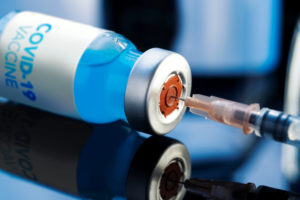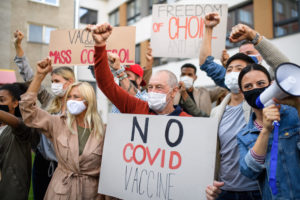As the coronavirus pandemic continues to affect millions of Americans — in the U.S. alone, more than two million people have been infected and over 100,000 have died — researchers are urgently seeking treatment options for COVID-19, the illness caused by the novel coronavirus. Because viruses aren’t treatable with antibiotics and can mutate quickly, it can be difficult for medical professionals to know the most effective course of treatment.
SARS-CoV-2, the strain of coronavirus responsible for COVID-19, has proven especially dangerous for elderly people and those with preexisting complications. About 14 percent of people over 80 who contract COVID-19 will die, and the virus hasn’t shown any signs of slowing down.
While we await an effective vaccine to protect against the virus, there is a potentially promising solution: stem cell research. In May, the U.S. Food and Drug Administration approved a stem cell research trial for patients with severe cases of COVID-19. The trial includes 60 patients and uses stem cells from umbilical cord tissue.
What are stem cells?
Stem cells are a unique type of human cell that can generate new types of cells. Researchers are still discovering all of the potential benefits of stem cells, and they are sometimes used in cancer treatments like chemotherapy. Because COVID-19 currently has no definitive cure and medical professionals are still determining the best medications to treat severe cases, researchers are hopeful about the potential benefits of stem cells.
There are three main types of stem cells: embryonic, adult and pluripotent. Embryonic stem cells come from unused embryos donated after in-vitro fertilization, and they can evolve into more than one type of cell. Adult stem cells come from fully developed tissue and are typically more limited in the types of cells they can make. Pluripotent stem cells are adult stem cells that have been manipulated to be more similar to embryonic cells.
Stem cells and COVID-19
We’re in the early stages of stem cell treatment for COVID-19, but there is reason to be hopeful about the promise they show. Stem cells can help control the body’s inflammatory response to a disease, and COVID-19 can cause both acute respiratory distress syndrome and pulmonary inflammation.
Right now, researchers are testing stem cell therapy with 300 patients around the U.S. All of the participants have severe cases of COVID-19 and are intubated, and about 1 in 4 coronavirus patients who are intubated will not survive. If all goes well with the clinical trial, which expects to have its results sometime in early 2021, stem cell treatment will be able to be used for even more patients and hopefully provide a way to improve the mortality rate and chances of recovery for coronavirus sufferers.
@thumbnail.jpg)
Both an Emory School of Law graduate and MBA graduate of Goizueta Business School at Emory, Chris Nace focuses his practice on areas of medical malpractice, drug and product liability, motor vehicle accidents, wrongful death, employment discrimination and other negligence and personal injury matters.














Comments for this article are closed.